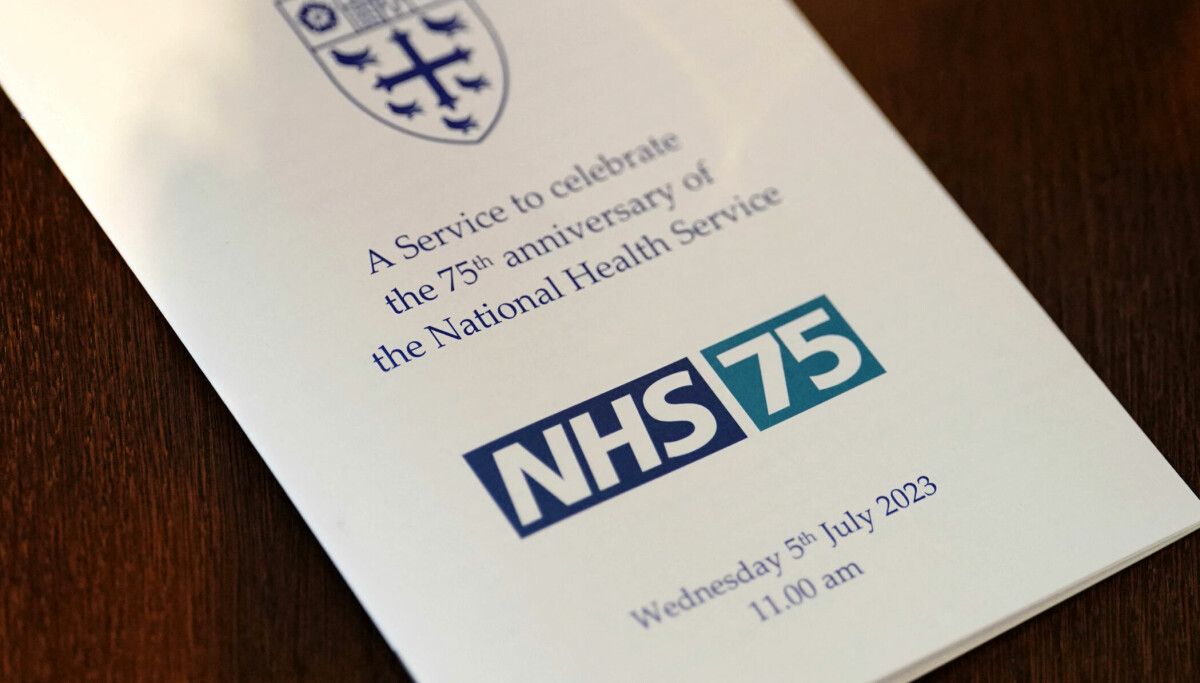© Delivered by ABC News
Physicians and patients should jointly come up with a plan for activities that are within the patient’s own energy window, according to the new guidelines from NICE in the UK.
The British National Institute for Health and Care Excellence (NICE) recently published its new guidelines for the treatment of people with fatigue syndrome, also called ME.
The guidelines were actually to be published in August , but the publication was postponed. Despite a very thorough process, they still had not managed to arrive at guidelines everyone would support, NICE wrote in its justification for the delay .
But after new meters and discussions, the guidelines have now been published . They represent a significant shift in treatment recommendations, compared to previous guidelines.
NICE’s guidelines only apply to healthcare professionals in the United Kingdom, and thus have no direct significance for Norwegian patients.
– In Norway, the National Guide for CFS / ME published by the Norwegian Directorate of Health still applies, writes Ingrid Helland, head of the National Competence Service for ME, in an email to forskning.no.
She writes that the competence service naturally follows the development of the field internationally. But it is the Norwegian Directorate of Health that decides whether any update of Norwegian guidelines is needed.
Focus on not exceeding energy limit
The National Institute for Health and Care Excellence (NICE) is a special health authority that makes recommendations for the health service’s treatment of many different diseases.
The new guidelines define ME as a complex, chronic medical condition that affects several systems in the body. Disease mechanism is still under exploration.
NICE is aware that there is currently no treatment that can cure ME, but that treatment can be given to manage the symptoms.
The guidelines emphasize adjusting the activity level so that symptoms are minimized. This applies to the sum of all activities, both mental, social and physical.
The guidelines recommend that healthcare professionals and patients work together to arrive at a stable activity pattern that does not exceed the Patient’s Energy Level and thus worsens the symptoms. One of the core symptoms of ME is precisely that small efforts can lead to severe deterioration afterwards, so-called PEM.
By adjusting the activity level regularly, as the disease varies and develops, the patient will be able to utilize his energy window without crashing.
Phrases degrees training
NICE’s new guidelines depart from previous recommendations on treatment with trending programs.
Healthcare professionals should not offer any form of therapy based on physical activity or exercise as a treatment to cure ME, the guidelines state.
The same applies to programs that aggravate symptoms or exceed the patient’s energy level, such as graded exercise therapy (GET), a treatment technique that aims at gradually increasing the activity level.
The guidelines advise against all exercise programs that are based on the hypothesis that ME is maintained by the patient avoiding physical activity for fear of getting worse, and thus getting in ever worse shape.
Do not recommend cognitive therapy or Lightning process
In the past, cognitive therapy has been recommended as a treatment to better or cure ME. Cognitive therapy is a psychological treatment that is about problem solving and gaining insight into the connections between thoughts, actions and emotions.
The new direction lines from NICE emphasize that such therapy can not cure ME, but that the treatment can help someone with the patient deal with the symptoms and life situation.
Cognitive therapy is thus improving the quality of life and reducing the grief of having to live with a chronic illness.
This is not about the fact that abnormal behavior or misconceptions of one’s own illness are causes of ME, but that thoughts, feelings, behavior and physiology influence each other, it is stated in the guidelines.
Regarding the Lightning Process, the recommendation is clear:
Do not offer Lightning Process, or treatments based on it, to people with ME, the guidelines state.
Reactions strike
There have been many reactions to the new guidelines, both from professionals and patient organizers.
Some people are very happy with the toning down of gradual exercise, because they think there is little documentary that the treatment works, and because many patients have reported that they get sicker from exercise therapy.
Others are very critical of the new guidelines. In the UK, several associations for doctors and psychiatrists have joined forces to protest . They believe the conclusions about training and cognitive right and therapy are simply wrong.
Helland and his colleagues from the National Competence Center for ME say they are wondering how the new guidelines scale down the effect of adapted physical activity.
– For passive tilt
– The new guidelines undercommunicate the importance of the complex interplay between biological, psychological and social factor and the importance this has on health and recovery, Helland writes.
– They have also downplayed the importance of physical activity for patients with ME. Today we have good knowledge that physical activity has many positive effects on both physical and mental health.
– It is, of course, a matter of course that all activity is adapted and adapted to the individual’s symptoms, level of function and strength. Activities such as going beyond the individual’s endurance, cause worsening of symptoms and must be avoided.
Helland believes that there is a lot of good in the new guidelines from NICE, but that the recommendations for treatment measures have become too passive.
– Although no drug or other effective treatment for CFS / ME has been found to date, there are a number of measures that can relieve unpleasant symptoms, contribute to constructive coping and improve the patient’s function and life skills, p.
disagreement major
A timely question is of course why we in Norway as a whole discuss another country’s guidelines for its health services.
In this country, the National guide for CFS / ME applies, which was last revised by the Norwegian Directorate of Health in 2015. Other nations have their own guides.
Nevertheless, the new NICE guidelines have been discussed in many countries.
This is because there is great professional disagreement about how ME should be understood and treated.
Everyone agrees that the mental and the physical are connected and affect each other. But very simply, one can say that some believe ME is primarily caused or maintained by psychic mechanisms, while others believe it is primarily due to biological mechanism.
The United States does not recommend trending and cognitive therapy
In recent years, there have been many studies that show physical problems in coughing ME patients, because they have come up with clear biological tests that can detect ME.
In many cases, it is also difficult to determine whether a physical problem led to ME or whether ME led to the physical problem. Very much is still unknown.
In this situation, the external data have been interpreted differently by different research groups and countries.
In the USA, a large research summary was published in 2015 that went a long way in defining ME as a physical disease .
The US health authorities, CDC, do not currently recommend training to treat ME. Cognitive therapy for is recommended only for dealing with stress, anxiety and depression that can occur in people with chronic illness.
Denmark recommends trending and cognitive therapy
In Denmark, the understanding is very different.
The Department of Functional Disorders at Aarhus University Hospital is the leading treatment center for ME. The researchers at the department have developed a new theory about both ME and other symptom diagnoses, such as irritable bowel syndrome and fibromyalgia.
The hypothesis states that all these diseases are really the same disorder – a mental and physical state of stress. The researchers believe this condition can be treated and for some cured. They just recommend gradual exercise and cognitive therapy to make the patient better or healthier.
In such a diverse landscape, there is naturally enough interest in development and change in different countries.
The UK’s guidelines have now become more similar to the recommendations in the US.
But there is still a lot of disagreement about how ME should be understood and treated, both within the country and between different researchers in the same country.
However, it seems that the vast majority agree that the symptoms of cough ME patients must be taken seriously.
Many people with ME have experienced prejudice and not being believed by other people, including family, friends, health professionals and teachers who do not understand their illness, the new guidelines state.
– It is a pity that one must emphasize the importance of acknowledging the patient’s symptoms, Heland states.
(This case was first published on Forskning.no ).

“Social media guru. Total beer fanatic. Tv ninja. Typical coffee fan. Amateur entrepreneur. Unapologetic food scholar.”







